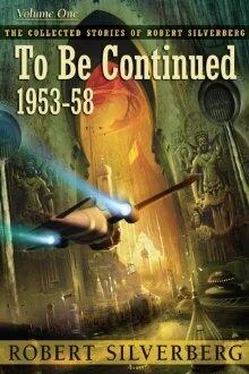Robert Silverberg - Sunrise on Mercury
Здесь есть возможность читать онлайн «Robert Silverberg - Sunrise on Mercury» весь текст электронной книги совершенно бесплатно (целиком полную версию без сокращений). В некоторых случаях можно слушать аудио, скачать через торрент в формате fb2 и присутствует краткое содержание. Год выпуска: 2012, ISBN: 2012, Издательство: Subterranean Press, Жанр: Фантастика и фэнтези, на английском языке. Описание произведения, (предисловие) а так же отзывы посетителей доступны на портале библиотеки ЛибКат.
- Название:Sunrise on Mercury
- Автор:
- Издательство:Subterranean Press
- Жанр:
- Год:2012
- ISBN:978-1-59606-507-9
- Рейтинг книги:3 / 5. Голосов: 1
-
Избранное:Добавить в избранное
- Отзывы:
-
Ваша оценка:
- 60
- 1
- 2
- 3
- 4
- 5
Sunrise on Mercury: краткое содержание, описание и аннотация
Предлагаем к чтению аннотацию, описание, краткое содержание или предисловие (зависит от того, что написал сам автор книги «Sunrise on Mercury»). Если вы не нашли необходимую информацию о книге — напишите в комментариях, мы постараемся отыскать её.
Sunrise on Mercury — читать онлайн бесплатно полную книгу (весь текст) целиком
Ниже представлен текст книги, разбитый по страницам. Система сохранения места последней прочитанной страницы, позволяет с удобством читать онлайн бесплатно книгу «Sunrise on Mercury», без необходимости каждый раз заново искать на чём Вы остановились. Поставьте закладку, и сможете в любой момент перейти на страницу, на которой закончили чтение.
Интервал:
Закладка:
Sunrise on Mercury
by Robert Silverberg
Nine million miles to the sunward of Mercury, with the Leverrier swinging into the series of spirals that would bring it down on the solar system’s smallest world, Second Astrogator Lon Curtis decided to end his life.
Curtis had been lounging in a webfoam cradle waiting for the landing to be effected; his job in the operation was over, at least until the Leverrier ’s landing jacks touched Mercury’s blistered surface. The ship’s efficient sodium-coolant system negated the efforts of the swollen sun visible through the rear screen. For Curtis and his seven shipmates, no problems presented themselves; they had only to wait while the autopilot brought the ship down for man’s second landing on Mercury.
Flight Commander Harry Ross was sitting near Curtis when he noticed the sudden momentary stiffening of the astrogator’s jaws. Curtis abruptly reached for the control nozzle. From the spinnerets that had spun the webfoam came a quick green burst of dissolving fluorochrene; the cradle vanished. Curtis stood up.
“Going somewhere?” Ross asked.
Curtis’s voice was harsh. “Just—just taking a walk.”
Ross returned his attention to his microbook for a moment as Curtis walked away. There was the ratchety sound of a bulkhead dog being manipulated, and Ross felt a momentary chill as the cooler air of the superrefrigerated reactor compartment drifted in.
He punched a stud, turning the page. Then—
What the hell is he doing in the reactor compartment?
The autopilot would be controlling the fuel flow, handling it down to the milligram, in a way no human system could. The reactor was primed for the landing, the fuel was stoked, the compartment was dogged shut. No one—least of all a second astrogator—had any business going back there.
Ross had the foam cradle dissolved in an instant, and was on his feet a moment later. He dashed down the companionway and through the open bulkhead door into the coolness of the reactor compartment.
Curbs was standing by the converter door, toying with the release-tripper. As Ross approached, he saw the astrogator get the door open and put one foot to the chute that led downship to the nuclear pile.
“Curtis, you idiot! Get away from there! You’ll kill us all!”
The astrogator turned, looked blankly at Ross for an instant, and drew up his other foot. Ross leaped.
He caught Curtis’ booted foot in his hands, and despite a barrage of kicks from the astrogator’s free boot, managed to drag Curtis off the chute. The astrogator tugged and pulled, attempting to break free. Ross saw the man’s pale cheeks quivering. Curtis had cracked, but thoroughly.
Grunting, Ross yanked Curtis away from the yawning reactor chute and slammed the door shut. He dragged him out into the main section again and slapped him, hard.
“Why’d you want to do that? Don’t you know what your mass would do to the ship if it got into the converter? You know the fuel intake’s been calibrated already; 180 extra pounds and we’d arc right into the sun. What’s wrong with you, Curtis?”
The astrogator fixed unshaking, unexpressive eyes on Ross. “I want to die,” he said simply. “Why couldn’t you let me die?”
He wanted to die. Ross shrugged, feeling a cold tremor run down his back. There was no guarding against this disease.
Just as aqualungers beneath the sea’s surface suffered from l’ivresse des grandes profondeurs —rapture of the deeps—and knew no cure for the strange, depth-induced drunkenness that caused them to remove their breathing tubes fifty fathoms below, so did spacemen run the risk of this nameless malady, this inexplicable urge to self-destruction.
It struck anywhere. A repairman wielding a torch on a recalcitrant strut of an orbiting wheel might abruptly rip open his facemask and drink vacuum; a radioman rigging an antenna on the skin of his ship might suddenly cut his line, fire his directional pistol, and send himself drifting away. Or a second astrogator might decide to climb into the converter.
Psych Officer Spangler appeared, an expression of concern fixed on his smooth pink face. “Trouble?”
Ross nodded. “Curtis. Tried to jump into the fuel chute. He’s got it, Doc.”
Spangler rubbed his cheek and said: “They always pick the best times, dammit. It’s swell having a psycho on a Mercury run.”
“That’s the way it is,” Ross said wearily. “Better put him in stasis till we get home. I’d hate to have him running loose, looking for different ways of doing himself in.”
“Why can’t you let me die?” Curbs asked. His face was bleak. “Why’d you have to stop me?”
“Because, you lunatic, you’d have killed all the rest of us by your fool dive into the converter. Go walk out the airlock if you want to die—but don’t take us with you.”
Spangler glared warningly at him. “Harry—”
“Okay,” Ross said. “Take him away.”
The psychman led Curtis within. The astrogator would be given a tranquillizing injection and locked in an insoluble webfoam jacket for the rest of the journey. There was a chance he could be restored to sanity once they returned to Earth, but Ross knew that the astrogator would go straight for the nearest method of suicide the moment he was released aboard the ship.
Scowling, Ross turned away. A man spends his boyhood dreaming about space, he thought, spends four years at the Academy, and two more making dummy runs. Then he finally gets out where it counts and he cracks up. Curtis was an astrogation machine, not a normal human being; and he had just disqualified himself permanently from the only job he knew how to do.
Ross shivered, feeling chill despite the bloated bulk of the sun filling the rear screen. It could happen to anyone…even him. He thought of Curtis lying in a foam cradle somewhere in the back of the ship, blackly thinking over and over again, I want to die, while Doc Spangler muttered soothing things at him. A human being was really a frail form of life.
Death seemed to hang over the ship; the gloomy aura of Curtis’s suicide-wish polluted the atmosphere.
Ross shook his head and punched down savagely on the signal to prepare for deceleration. Mercury’s sharp globe bobbed up ahead. He spotted it through the front screen.
They were approaching the tiny planet middle-on. He could see the neat division now: the brightness of Sunside, that unapproachable inferno where zinc ran in rivers, and the icy blackness of Darkside, dull with its unlit plains of frozen CO 2.
Down the heart of the planet ran the Twilight Belt, that narrow area of not-cold and not-heat where Sunside and Darkside met to provide a thin band of barely tolerable territory, a ring nine thousand miles in circumference and ten or twenty miles wide.
The Leverrier plunged planetward. Ross allowed his jangled nerves to grow calm. The ship was in the hands of the autopilot; the orbit, of course, was precomputed, and the analogue banks in the drive were serenely following the taped program, bringing the ship towards its destination smack in the middle of—
My God!
Ross went cold from head to toe. The precomputed tape had been fed to the analogue banks—had been prepared by—had been entirely the work of—
Curtis.
A suicidal madman had worked out the Leverrier ’s landing program.
Ross began to shake. How easy it would have been, he thought, for death-bent Curtis to work out an orbit that would plant the Leverrier in a smoking river of molten lead—or in the mortuary chill of Darkside.
His false security vanished. There was no trusting the automatic pilot; they’d have to risk a manual landing.
Читать дальшеИнтервал:
Закладка:
Похожие книги на «Sunrise on Mercury»
Представляем Вашему вниманию похожие книги на «Sunrise on Mercury» списком для выбора. Мы отобрали схожую по названию и смыслу литературу в надежде предоставить читателям больше вариантов отыскать новые, интересные, ещё непрочитанные произведения.
Обсуждение, отзывы о книге «Sunrise on Mercury» и просто собственные мнения читателей. Оставьте ваши комментарии, напишите, что Вы думаете о произведении, его смысле или главных героях. Укажите что конкретно понравилось, а что нет, и почему Вы так считаете.












